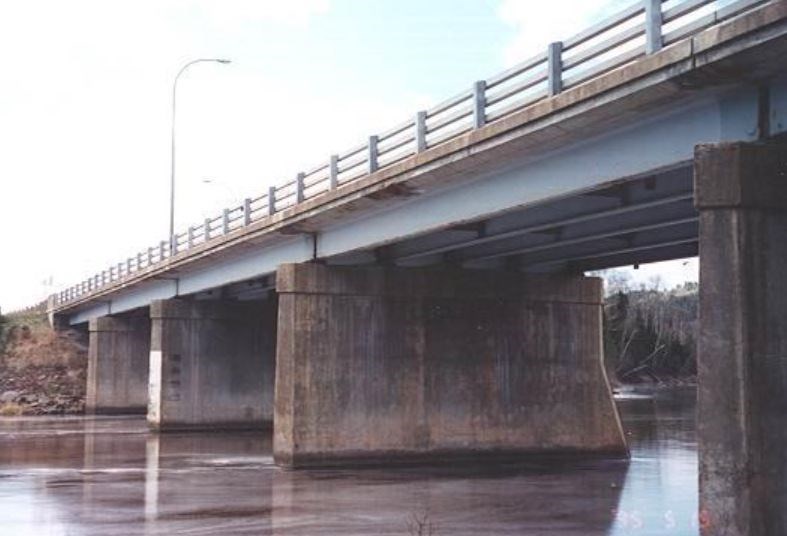GRAND PORTAGE, MINNESOTA — Motorists crossing the border at Pigeon River will soon observe some new signage.
The Grand Portage Band of Lake Superior Chippewa and the Minnesota Department of Transportation this week are unveiling dual-language English-Ojibwe signs at several river crossings along Highway 61.
"We want to be able to at least get people thinking about the history and the connections to this Indigenous knowledge that's held in these place names," said Erik Redix, Ojibwe language coordinator for the band.
One of the selected locations is Pigeon River, called Omiimii-ziibi in Ojibwe.
"I think it's important for everybody to kind of have an awareness of the names because, a lot of times, these river names provide deeper meaning," Redix said Monday in an interview with TBnewswatch.
"The elders here talk about how at one time there were flocks of passenger pigeons at that location, and there were so many of them they would black out the sky. They would smoke those pigeons and use them as a food source."
The five river crossings receiving new signs are all situated between the international border and Grand Marais, including three sites not on Grand Portage Band territory.
A spokesperson for the state department of transportation said this is the first time the state has installed dual-language signs anywhere outside a reservation boundary.
Redix noted that some of the English-language names for the rivers don't accurately reflect the historic Indigenous names.
He said the Devil Track River, where a ceremonial unveiling of the new signs will take place Thursday, is Manidoo-bimaadagaakowinii in Ojibwe, which translates to "spirits walking on ice."
The new signs, he said, will bring recognition to the true meaning and the fact that "it's only tangentially related to the English name."
Redix said the band is also working with Cook County to put up new signs on some county roads inland from Lake Superior.
"They've been great to work with. We just want to bring as much Ojibwe language signage to whoever we can."
The band has partnered as well with Grand Portage National Monument, which has posted some audio recordings of the Indigenous names and their direct translations to English.
"We just really want to get the word out . . . Even if everybody, when they pass by, doesn't rattle off these names in Ojibwe right away, we want to at least get people thinking about these connections to the Indigenous language knowledge that's held in these place names," Redix said.
